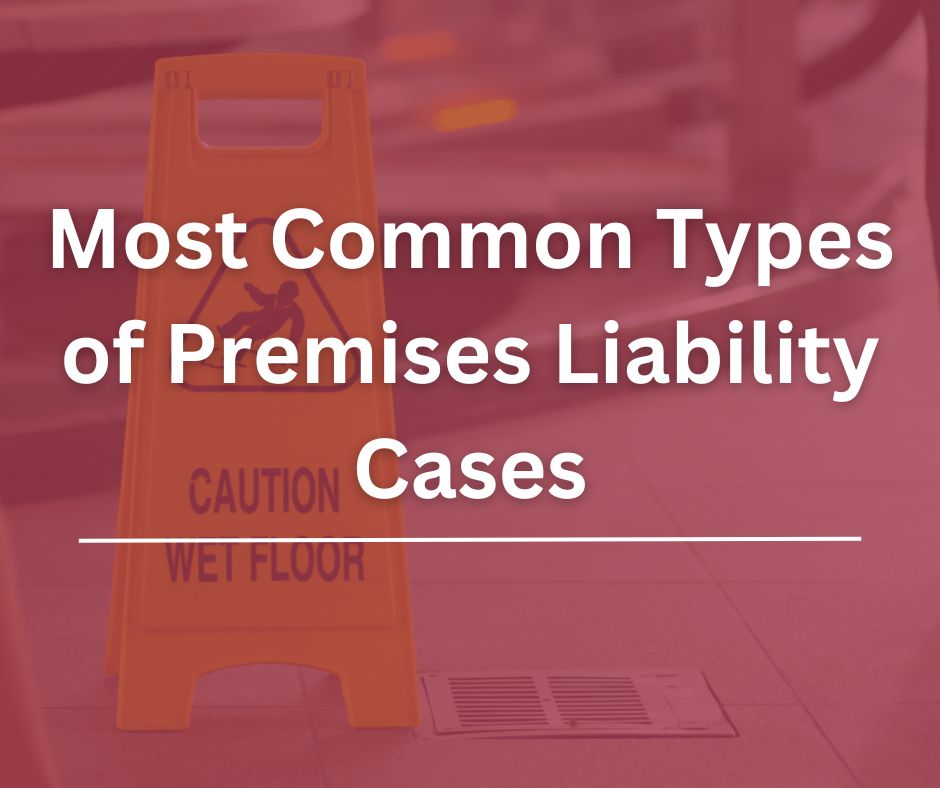
A premises liability lawsuit is filed when someone is injured on a property due to the owner’s negligence. Property owners must keep their property safe; failure to do so may make them liable for injuries. If you’re determining whether you have a valid premises liability claim, it’s crucial to consider if the property owner failed to maintain a safe environment or adequately warn of potential dangers. Understanding the specifics of these lawsuits can help you evaluate your situation and take appropriate legal steps.
Most of us expect to be safe when we run errands at a local drugstore, ride the elevator to our office, or walk down the street. When a serious injury occurs on someone else’s property due to the owner’s negligence, you have a right to recover compensation for your losses. While hazards exist all around us, an owner has a duty to protect you from these dangers.
Failing to take the necessary steps to protect you and others from injury could make them liable for events happening on their property. Read on to learn more about different types of premises liability cases and how these classifications could affect your potential payout.
What is Premises Liability?
Premises liability describes cases where a person enters the property of another and has an expectation that they will be safe. If the person suffers an injury or death, the owner or operator of the premises may be liable for failing to maintain a safe environment. Premises liability lawsuits include a wide range of situations. However, it’s vital to first determine a person’s classification on the property before liability can be determined.
Common Types of Premises Liability Cases
Premises liability encompasses a wide array of situations where a victim incurs injuries. While not an exhaustive list, the following examples are the most common types of premises liability examples seen by Washington premises liability attorneys.
Slip and Fall
Slip and fall incidents encompass various types of situations where a person loses their footing and falls, resulting in injuries. Examples of slip and fall accidents include:
- Ice or snow not cleared off of a surface,
- Damaged walkways or driveways leading to a business,
- Poorly maintained stairs, and
- Potholes in a sidewalk or pavement.
Slip and fall accidents are extremely common and often happen when individuals least expect them. Unfortunately, these incidents can cause serious injuries when they occur, and getting just compensation is key to getting your life back on track.
Elevator and Escalator Accidents
Various parts must work perfectly together to make elevators and escalators operate effectively and safely. When they break down or collapse while a person is using them, they can cause serious injury. There are many reasons why an elevator or escalator may break, including design defects, manufacturing defects, improper installation, or faulty wiring. However, the owner of the building is responsible for maintaining these transportation systems so that users are kept safe from harm.
Negligent Security
Property owners or operators have a duty to know whether their guests are at risk of being the victim of criminal activity. In situations where a premises has a history of criminal activity in the area, an owner or operator must equip the location with adequate security measures. Your attorney investigates what measures, if any, were undertaken by the property owner to protect their guests.
Dog Bites
Many may be surprised to learn that dog bites follow premises liability laws. In Washington, dog owners are strictly liable for any injuries or other losses caused by their dogs. If a dog attacks a trespasser, or the dog is provoked, the dog owner may not be liable. However, in most other situations the owner is legally liable when their dog bites another person.
Falling Objects
Falling object accidents occur most commonly around construction sites but can happen in other locations as well. Pieces of dilapidated building facade can fall as you go about your day. Improperly placed objects can fall off the back of trucks on roadways and injure other drivers. A victim must prove that the building owner knew that their building was in poor condition or that the truck driver knew they did not adequately secure the objects in their truck in order to recover.
Swimming Pool Accidents
Swimming pools can be dangerous. If an owner leaves their pool inadequately protected or unsupervised, they may be responsible for any injuries that occur. Washington law deems swimming areas as “attractive nuisances,” meaning that they are likely to attract children. Homeowners are liable for accidents involving children, even if the child used the pool without consent.
Supermarket Accidents
Improper cleaning, insufficient building maintenance, negligent security measures, and other forms of negligence can lead to serious injuries to patrons. For example, if an owner failed to fix a broken chain on an overhead light leading to it falling on a customer, an investigation may prove that the owner had knowledge of the dangerous condition but did nothing to correct it.
Who is Liable?
Different types of premises liability cases, and the compensation that may be awarded, hinge on how the injured victim is classified under Washington law.
Business Invitee
Business invitees are individuals invited onto a property to do business. Examples include patrons of grocery stores. When it comes to these persons, an owner or operator must exercise care to keep the property in a reasonably safe condition. This duty includes a responsibility to inspect the property for dangerous conditions and correct them when discovered. Owners and operators also owe a duty to clients to protect them from criminal conduct they know or reasonably should know is occurring.
Licensees
Licensees are visitors who are on a premises with the owners’ implied consent. Examples include a guest visiting a friend’s home or a mailman delivering mail. Owners are responsible for injuries if they know or should have known of a dangerous condition and did not take steps to remedy the defect. If the owner does not remedy the situation, they must warn the licensee of the condition. Failure to do so makes them liable for any injuries to the licensee.
Trespassers
Trespassers are individuals who are on a premises without permission. An owner owes no duty to a trespasser to make a condition safer, however, they must not undertake any action to intentionally or wantonly injure them.
Understanding your classification at the time of your injury is vital to your compensatory relief. Your attorney investigates the facts of your case to determine whether the owner or operator is responsible for your injury.
Proving a Premise Liability Lawsuit
No matter the type of premise liability accident you endured, as the injured plaintiff, you have the burden of proving your case. To have a successful claim, you must prove the following essential elements.
- Defendant owned the property. As the injured plaintiff, you must show the defendant owned, operated, leased, or otherwise controlled the property where your injury occurred. Sometimes, ownership is apparent; other times, it takes investigative work to pull land titles, deeds, lease documents, and more to determine who is liable.
- Defendant owed a duty of care. Second, you must prove the defendant owed you a duty of care to protect you from injury. This duty of care will vary depending on your visitor classification. Whether you are an invitee, licensee, or trespasser will determine the applicable standard of care the defendant owes you. Invitees are given the highest duty of care, while trespassers are the least. Your attorney can discuss what type of visitor you were and how that classification will affect your case.
- Defendant breached that duty of care. If the plaintiff can establish the defendant owed the property and owed them a duty of care, they must prove the defendant breached that duty by failing to keep the property safe from flaws, defects, or necessary repairs.
- Defendant’s breach caused damages. Last, a premise liability plaintiff must show that the defendant’s breach caused the accident and injury and that you were financially damaged. For example, your injury required medical treatment and caused you to miss work.
What Should You Do Following a Premises Liability Accident?
In the moments after you are injured in a premise liability accident, it is common to feel overwhelmed, confused, and hurt. You might be wondering, What do I do next?
Here are three simple steps to guide you in those first moments.
See a Doctor
Whether you believe you only suffered minor bumps and bruises or have a severe debilitating injury, you should seek immediate medical attention. It is imperative to be thoroughly examined by a physician. You may require diagnostic care (e.g., x-rays) and treatment to heal your injury. Having medical records documenting your visits and care is also a good form of evidence should you pursue a claim or lawsuit.
Notify the Property Owner or Manager
If the property owner was not present at the time of your accident, you should notify them of what transpired, including where the accident occurred, what happened, and any other specific details.
Document the Accident
If you are physically able, you should take pictures of the accident scene. For instance, if you slipped in a grocery store on an uncleaned spill, you should take a picture of the spill and the surrounding area. Whether you can document evidence while at the scene or not, it is wise to journal what you can recall from the moments before, during, and after the incident while they are still fresh in your mind. Depending on the circumstance, keeping your clothes from the time of the accident can be helpful. For example, if you were attacked by a dog, having a ripped or torn shirt can be a valuable tool for proving your case later.
Contact Us
At Brett McCandlis Brown & Conner, we set a record for recovering $6 million for one of our trip and fall clients. If you or a loved one was injured in a premises liability accident, our fierce attorneys are ready to advocate for you.
From the moment you hire Brett McCandlis Conner & Brown, you can stop worrying about medical bills, lost work, insurance adjusters, and future expenses. While you focus on your physical and emotional recovery, we concentrate on your financial recovery. Our attorneys are knowledgeable, aggressive, and compassionate when fighting for the rights of our clients.
We have assisted many of our clients with the legal side of terrible accidents, painful injuries, and wrongful death, and want to do the same for you. Contact us today by phone or email to obtain a free consultation and learn how Brett McCandlis Conner & Brown can help you.


